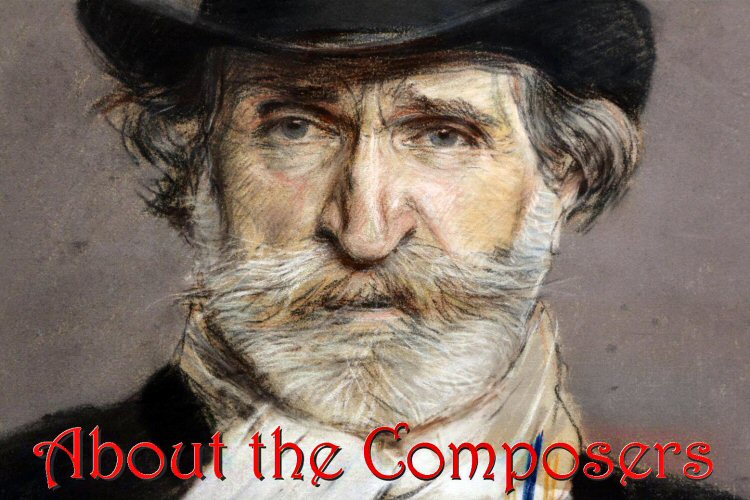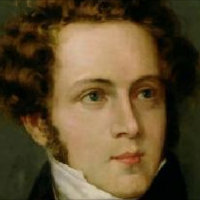
The short-lived Bellini, who was born in Sicily, trained in Naples, and finally achieved success in Milan and Paris, with his operas La sonnambula, Norma, and I puritani. Renowned for his long melodic lines and psychological acumen, he was the quintessential composer of bel canto opera.
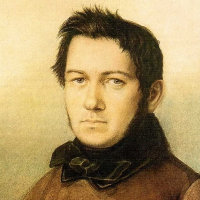
Glinka's two completed operas, the historical A Life for the Tsar (1836) and the fantasy Ruslan and Lyudmila (1841), earned him the title of "Father of Russian Music, the two particularly influencing Mussorgsky and Rimsky-Korsakov respectively. He excelled in composing singable melodies in a colorful dramatic atmosphere.
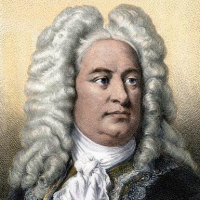
Gradually over the last half-century, Handel's 42 operas and numerous dramatic oratorios have been recognized as placing him on the level of Mozart and Verdi as an opera composer. The delay in appreciation is partly due to the fact that his preferred form, opera seria, is based almost entirely on recitative and solo arias. Born in Germany and trained in Italy, he dominated the English musical scene in the first half of the 18th century.
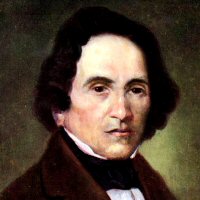
Although born and trained in Germany, Meyerbeer began his prolific opera career in Italy, falling under the spell of the serious operas of Rossini. He moved to Paris in 1826 and began a series of operas that essentially defined the notion of Grand Opera, among them Robert le Diable (1831), Les Huguenots (1836), Le Prophète (1849), and L'Africaine (1865).

A child prodigy as both performer and composer, Mozart produced an extraordinary body of work in all genres over a relatively short life. His work in Salzburg culminated in the classical Idomeneo (1781), but he wrote his greatest operas after moving to Vienna the next year: three collaborations with Lorenzo da Ponte—The Marriage of Figaro (1786), Don Giovanni (1787), and Così fan tutte (1790)—framed by two German Singspiels: The Abduction from the Seraglio (1782) and The Magic Flute (1791).
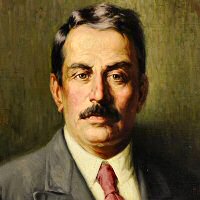
Puccini took up the mantle of Verdi as the dominant opera composer of the late 19th century, and developed an international popularity that is unrivaled to this day. His principal works include: Manon Lescaut (1893), La bohème (1896), Tosca (1900), Madama Butterfly (1904), and the unfinished Turandot (1926). Two of his operas, La fanciulla del West (1910) and Il trittico (1918), were written expressly for the Metropolitan Opera in New York.
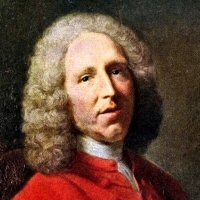
Rameau first won fame as a music theorist and composer of harpsichord music. It was not until his 50th year that he wrote the first of the elaborate operas (tragédies en musique) on which his fame now rests. These include Hippolyte et Aricie (1733), Les Indes galantes (The Amorous Indes, 1735), Dardanus (1737), and the posthumous Les Boréades (Sons of the North Wind, 1763).

Though a naval officer in professional life, Rimsky was the most brilliant orchestrator of the "Famous Five," and responsible for completing Borodin's Prince Igor and preserving Mussorgky's Boris Godunov for many decades in more conventional clothing. His own operas such as The Tsar's Bride (1899), The Invisible City of Kitezh (1904), and The Golden Cockerel (1907), are staples of the Russian repertoire, but less frequently produced elsewhere.
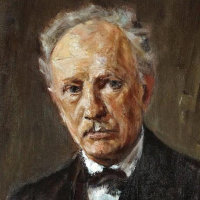
You might say that Strauss had two careers: as an orchestral composer, and as an opera one. His tone poems in the 1890s such as Don Juan and Till Eulenspiegel brought him immediate fame, but he wrote his last big orchestral work in 1915. Meanwhile his operas Salome (1905) and Elektra (1909) continued his radical Expressionism, but with Der Rosenkavalier (1911), he began a stylistic retreat that continued until his last opera, Capriccio, in 1942.
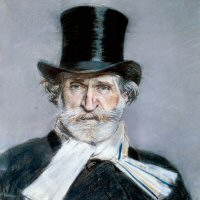
Verdi's two dozen or more operas (depending on how you count them) make him the leading Italian opera composer of his time and among the two or three greatest opera composers ever. After what he called his "years in the galleys," he hit his stride in the early 1850s with the trio of Rigoletto, Il Trovatore, and La Traviata. He intended Aïda to be his last work, but was persaded out of retirement to write his final Shakespearean masterpieces: Otello (1886) and Falstaff (1893).
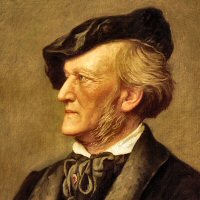
Wagner almost single-handedly transformed the nature not only of opera but also of harmony and orchestration. His 10 mature operas include Tristan und Isolde (1865), Die Meistersinger von Nürnberg (1868), and the vast tetralogy Der Ring des Nibelungen (completed 1876), for which he had a special theater built at Bayreuth. His final opera, Parsifal (1882), was written for exclusive performance at that theater.
